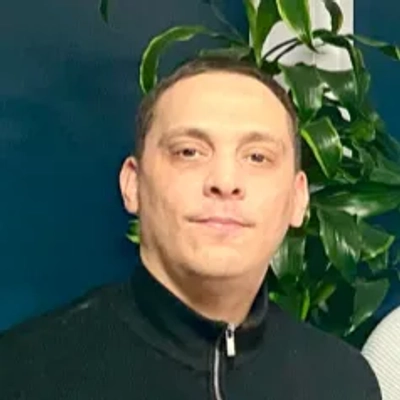13 Interview Questions to Identify Top Marketing Talent
Discover the key questions that can help you identify top-tier marketing talent for your organization. This comprehensive guide draws from the insights of industry experts to provide a robust framework for evaluating candidates. Learn how to assess crucial skills such as data analysis, creative problem-solving, and adaptability in potential marketing hires.
- Seek Accountability in Failed Campaigns
- Value Data-Driven Problem Solvers
- Navigate Ambiguity with Resourcefulness
- Prioritize Creative Brand Growth Strategies
- Connect Strategy with Measurable Outcomes
- Balance Creativity and Data Analysis
- Assess Problem-Solving and Self-Initiative Skills
- Evaluate Adaptability and Learning from Setbacks
- Gauge Resilience and Constructive Reflection
- Test Collaboration and Technical Knowledge
- Analyze Critical Thinking on Marketing Campaigns
- Examine Real-World Keyword Strategy Application
- Measure Tangible Impact on Product Success
Seek Accountability in Failed Campaigns
Greetings,
Lars Nyman here — veteran fractional CMO and longtime marketing strategist for everything from pre-seed SaaS plays to Fortune 500 behemoths.
My advice has appeared in publications like Forbes, Fortune, and InformationWeek (usually somewhere between a eulogy for dead attention spans and a sermon on brand gospel).
I like to ask: "Tell me about the last time you killed a campaign, and why."
Not paused. Not "pivoted." Killed. I'm looking for blood on their hands (we all have it), and more importantly, accountability for it. I also want to see proof they're not married to ego or attachment. In marketing, your sacred cow will become ground beef. If a candidate can't admit failure, or worse, spins a feel-good yarn about how "it actually worked in other ways," I know they're allergic to data or truth. That's lethal.
They should speak in ratios and real-world results: CAC, LTV, contribution margin (not "vibes"), and even when it comes to failures. Companies that iterate campaigns based on incoming data see higher marketing ROI. Kill fast or die slow.
I'm also looking for honesty, humility, and the ability to admit and learn from both data and personal mistakes.
As a side note, I'm also watching how they talk about team dynamics. Did they take responsibility? Did they push back against groupthink (and how do they do it delicately and constructively)? If someone can't kill a bad idea, they'll never birth a great one. Marketing needs operators, not poets.
Best,
Lars Nyman
nyman.media

Value Data-Driven Problem Solvers
I ask: "Tell me about a marketing campaign you ran that didn't work. What did you change afterward?" I'm not looking to hear about failure just for the sake of it. I want to see how they think when things go off track.
Good marketers don't just chase wins. They know how to dig into what went wrong and adjust quickly. So I'm listening for someone who can walk me through what happened, what signals they paid attention to—like drop-off points, CPC spikes, or missed conversion goals—and what they did next.
If the answer is vague or packed with buzzwords, that's usually a red flag. It tells me they might not have been close to the actual work.
The strongest responses are clear and structured. They show the person knows how to read the data, pinpoint what broke, and make changes without getting stuck in blame or spinning their wheels. This tells me they've actually been in the weeds and know how to stay focused when things get messy.
Most people can talk through a polished win. But I'm more interested in the ones who can break down a misstep, learn from it, and keep going. Because that kind of thinking is what holds up when things don't go as planned, which happens a lot.

Navigate Ambiguity with Resourcefulness
Tell me about a time when you worked on a marketing initiative without having full clarity, resources, or authority—how did you approach it, and what was the outcome?
I ask this question because my team operates in high-growth and transformation-focused environments. Almost always, there are many moving parts: shifting priorities, too many stakeholders, conflicting agendas, evolving data, or limited support. I want to understand how a candidate navigates ambiguity, develops relationships across functions, and makes progress when a golden playbook doesn't exist. I'm listening for a blend of resourcefulness, empathy, and a drive to bring clarity. Do they default to collaboration or wait for direction? Can they find signal in the noise and bring others along with them? Do they ask the right questions, test hypotheses, and adapt? There may not be one right answer, but I want to see how they think, communicate, and inspire others even when the path isn't clear. That mindset is critical on my team, where we're often tasked with building new programs, scaling what works, and finding ways to turn complexity into clarity.

Prioritize Creative Brand Growth Strategies
I almost always ask, "Can you walk me through a time you helped a brand grow using an unconventional or creative strategy?" I'm looking for resourcefulness, because I've built brands with Fortune 500 budgets and also from scratch with nothing but grit and a strong message. Creativity and adaptability are non-negotiables on my team. The best people I've hired are the ones who know how to position a brand to stand out, craft and tell a story that sells, and generate momentum without waiting for permission. I'm not impressed by jargon or by what is possible, because in theory, everything and anything is possible. I'm looking for sharp thinking, clear execution, and a results-first mindset. That's how we've been able to move fast, serve our clients, and stay ahead.

Connect Strategy with Measurable Outcomes
One question I often ask potential marketing hires is:
"Can you describe a recent campaign you've worked on and how you measured its success? What data did you focus on, and how did you use that data to optimize or improve the campaign?"
The specific quality I'm looking for in their response is their ability to connect strategy with measurable outcomes. Marketing is all about results, and I want to hear how candidates use data to not only execute campaigns but also to assess performance and make adjustments for improvement. Their answer should demonstrate both analytical thinking and a strategic approach to problem-solving.
I'm also looking for curiosity and a willingness to learn—a marketer who actively seeks to understand why something worked or didn't work, and who is constantly looking for ways to optimize. In today's data-driven environment, these traits are essential for making informed decisions and driving successful campaigns.
Balance Creativity and Data Analysis
One question I ask potential marketing hires during an interview is, "Can you walk me through a marketing campaign you've worked on from start to finish, and explain how you measured its success?"
The quality or skill I'm looking for in their response is strategic thinking combined with data-driven decision making. I want to hear how they approached the campaign, what goals they set, and how they tracked performance to ensure it was effective. A great candidate will show they understand the importance of aligning marketing efforts with broader business objectives and know how to measure and adjust tactics based on real-time feedback.
I'm also looking for candidates who can speak to the creative process as well as the analytical side of marketing. It's not just about having good ideas but being able to evaluate them through metrics like ROI, engagement rates, and conversions. This ability to balance creativity with data is crucial for success in today's fast-paced marketing world.

Assess Problem-Solving and Self-Initiative Skills
One question I always ask potential marketing hires is:
"What do you do when you don't know something?"
It's simple, but it tells me a lot.
What I'm looking for in their answer:
Self-initiative - A good response involves using tools like Google, ChatGPT, or documentation to figure things out independently.
Problem-solving mindset - I want to see that they don't freeze or pass the problem along—they own it.
Communication skills - Bonus points if they also mention how they'd communicate this to a client or team lead. It shows they understand it's okay not to know everything, as long as you're proactive and transparent.
At the end of the day, I'm not hiring a know-it-all. I'm hiring someone who knows how to keep moving forward—and keep the client confident while doing it.

Evaluate Adaptability and Learning from Setbacks
One question I always ask potential marketing hires is: "Can you share an example of a marketing campaign you've worked on that didn't go as planned? What did you learn from it, and how did you adapt?"
The specific quality I'm looking for in their response is problem-solving and adaptability. Marketing is rarely a straight path, and things often don't go as expected - whether it's a campaign that doesn't perform as anticipated or an unexpected challenge that arises mid-project. I want to see how they handle setbacks, their ability to pivot quickly, and whether they can learn from mistakes to improve future campaigns.
Their answer gives me insight into their resilience, critical thinking, and whether they are comfortable with taking ownership of both successes and failures. Marketing requires a mix of creativity and analytical thinking, and I need someone who can balance both while staying flexible and continuously learning from their experiences.

Gauge Resilience and Constructive Reflection
When I'm interviewing potential marketing hires, I like to ask, "Can you describe a marketing campaign you led that didn't achieve the desired results? What did you learn from it?" This question helps me understand how candidates handle setbacks, which is crucial in marketing where not every campaign hits the mark. It shows if they're able to reflect on failures constructively and adapt their strategies accordingly.
For example, a candidate might explain how a campaign underperformed due to misaligned audience targeting and how they adjusted strategies based on data insights. This not only demonstrates their problem-solving skills but also their commitment to learning and improving.
I also look for how they communicate these experiences. A thoughtful, honest response indicates transparency and the ability to articulate lessons learned, which are vital for continuous improvement within a team.
Overall, this question gives me insight into a candidate's resilience, adaptability, and communication skills—all essential qualities for a successful marketing professional.

Test Collaboration and Technical Knowledge
When I interview marketing candidates, I always want to know how they've handled real campaigns — not just theory, but hands-on decisions. One question I often ask is about a cross-functional project they were part of. I want to hear not just what the outcome was, but how they communicated across teams, how they adapted when something didn't go as planned, and what they learned from it. Over the years, I've learned that the best marketers don't just execute — they collaborate, troubleshoot, and learn quickly. That's what makes them effective in a service business like ours.
For technical depth, I also include a few practical checks. A good example: I ask them to explain the difference between CPM and CPT. It's a small thing, but telling. Strong candidates will know they mean the same thing, but also explain why both terms exist and which is used more often in different contexts. These kinds of questions help filter out those who've actually run campaigns from those who've only read about them. It's not about tricking anyone — it's about making sure they've been in the trenches.
Analyze Critical Thinking on Marketing Campaigns
One question I ask potential marketing hires is: "Tell me about a recent marketing campaign you truly admired that wasn't from a global giant, or conversely, one you thought failed spectacularly. What made it stand out or what were the key takeaways?"
I'm looking for their ability to think critically and analytically about strategy, not just aesthetics. Do they understand the "why" behind a campaign's success or failure? This question reveals their observational skills, their understanding of target audiences, resourcefulness (especially if they pick a smaller brand's success), and their capacity to learn from both triumphs and missteps in the industry. It shows if they're truly passionate and observant about the marketing landscape.

Examine Real-World Keyword Strategy Application
As the owner of SuccessfulWebMarketing, one key question I ask marketing candidates is:
"Can you give an example of how you found and used a keyword to improve a campaign? What made you choose that keyword, what steps did you take, and what happened as a result?"
I look for candidates who can clearly explain their research process—highlighting data points like search volume and difficulty—demonstrate strategic thinking in targeting that keyword, detail how they implemented the campaign, and reflect on the outcomes. This shows they understand not just theory but real-world application and continuous improvement, which is essential in our data-driven SEO work.
Measure Tangible Impact on Product Success
"What is the most measurable impact you've had on the success of a product or service?"
I've spent the last 20 years hiring CMOs and other marketing leaders for online and technology companies. In this context, marketing activities need to always create a strong ROI and a measurable impact. If a marketer is unable to provide strong examples of how they have improved the commercial performance of a product or service, then they are unlikely to be able to get budget and buy-in for their ideas.
Marketing leaders are ultimately judged on their performance - and there's no better way to do that than to see what impact their activities have had on sales.





